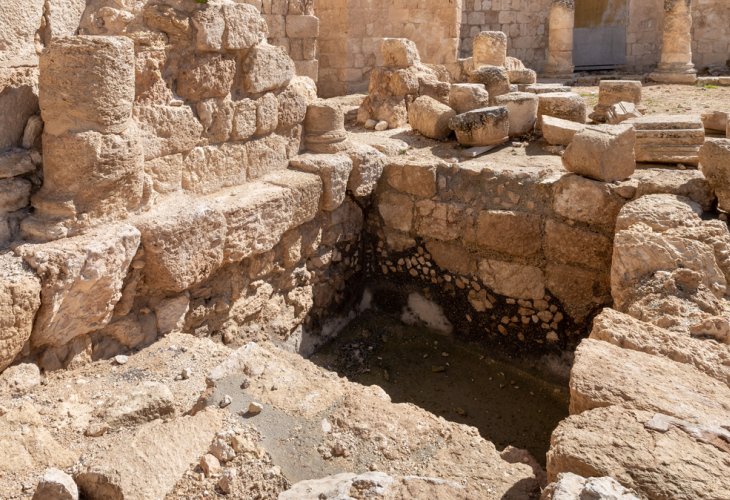Discovering History: How Archaeological Finds Reveal Rabbinic Edicts
Older synagogues had adjacent mikvahs, but at some point, they disappeared. Why did synagogues stop having nearby mikvahs?
 (Photo: shutterstock)
(Photo: shutterstock)Have any archaeologists among you ever uncovered a rabbinic decree buried underground? Perhaps a fascinating edict, covered in layers of dust?
Well, some researchers have been lucky enough to find traces of our sages' decrees beneath the soil of Jerusalem...
There are many remnants of synagogues in Israel and the surrounding region, and researchers have noticed a curious phenomenon: older synagogues had nearby mikvahs, but at a certain point, these mikvahs vanished. Synagogues were without adjoining mikvahs. Why did this happen?
Most archaeologists couldn't fathom the explanation, as their familiarity with the Talmud is limited. However, a religious scholar proposed that the change was related to the nullification of Ezra's decree. As described in the Talmud, at some point, Ezra's decree to immerse before prayer was abolished, and indeed, the absence of mikvahs corresponds to that period.
Another interesting point is that during the time of the Second Temple, stone vessels were widely used. Excavated ancient homes in Jerusalem contained many stone items such as cups, plates, and jugs. The reason is simple: stone vessels do not become impure. A priest living in purity, who is forbidden from becoming impure, would find it very difficult to maintain the purity of their utensils. If they touched a carcass or an impure person, they would have to immerse all their utensils again, or the offerings within them might become disqualified. Therefore, they used stone vessels, which remain unaffected by impurity.
However, stone vessels only became common during Herod's period, leading researchers to wonder if people before Herod neglected purity laws. Clearly, this was not the case.
Again, a religious scholar suggested a plausible explanation: citing the Talmud on Shabbat 15a, "Eighty years before the destruction of the Temple, they decreed impurity over the lands of the nations and on glass vessels." According to Torah law, glass does not become impure, which is why it was used in purity practices. Once the sages decreed impurity on glass vessels, priests had to switch to stone utensils.
There are additional examples of how rabbinic decrees and compliance with them are reflected in archaeological findings.

